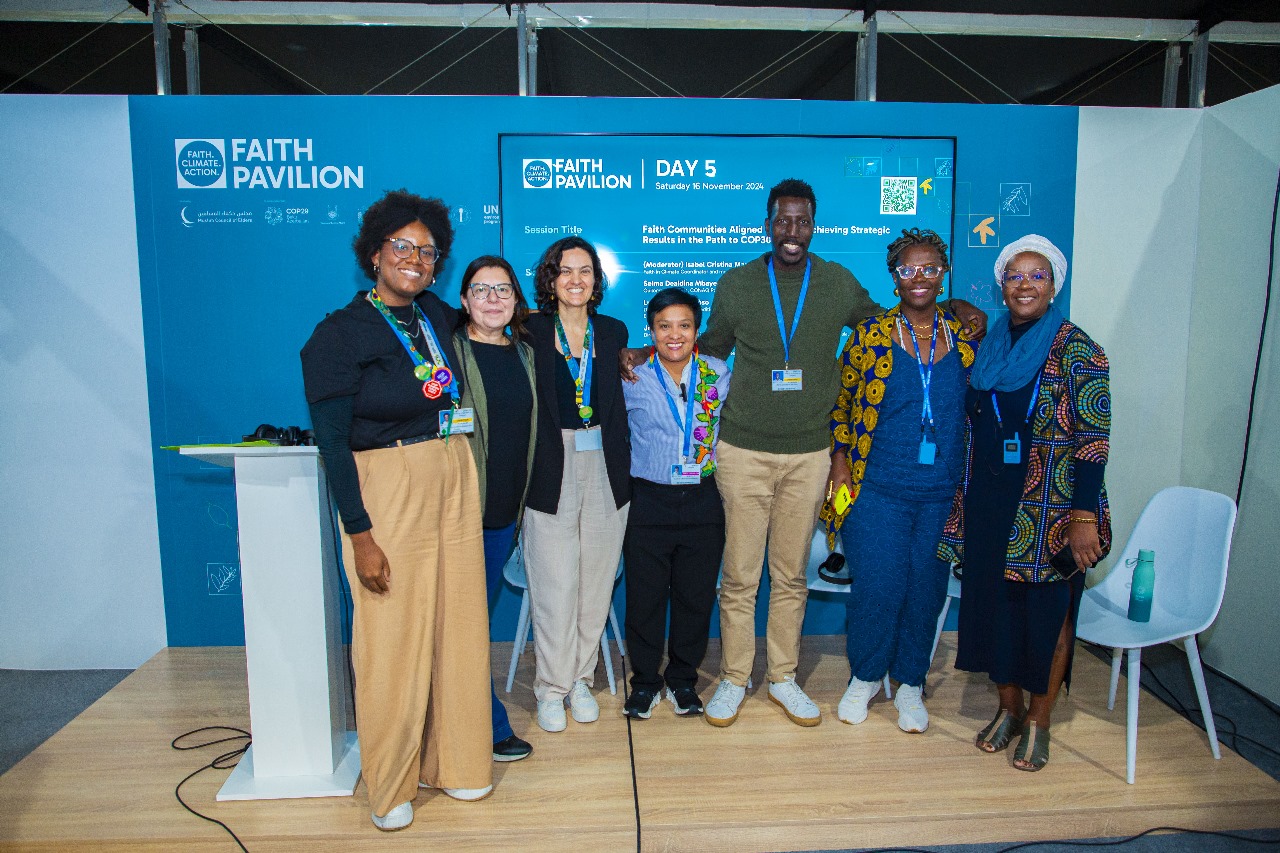Combining Religious Values and Scientific Knowledge to Enhance Environmental Awareness - Discussions from Day Five of the Faith Pavilion at COP29
The fifth day of the Faith Pavilion at COP29 featured a series of discussion sessions addressing the urgent challenges posed by climate change. Sessions emphasized the importance of enhancing transparency in global climate action and advocated for the unification of efforts by faith communities to achieve tangible results in tackling the environmental crisis. They also focused on combining religious values with scientific knowledge to raise environmental awareness and protect the communities most affected by the impacts of climate change.
In his opening remarks, Eugene Cho, CEO of Bread for the World, highlighted that climate change is one of the key drivers of global hunger and poverty. He noted that 45 million children suffer from severe malnutrition and that climate-related disasters have impacted 1.7 billion people over the past decade. Cho stressed the importance of collective action to address these critical challenges through decisive and immediate measures to protect the planet and mitigate the effects of climate change on vulnerable and affected communities.
During the first session, titled "Defining Climate Discourses: A More Effective Strategy for Engaging Grassroots Communities in Faith-Based Climate Diplomacy," participants explained that grassroots climate discussions often rely heavily on religious understandings of environmental changes, which may sometimes differ from scientific and technical language. They emphasized the importance of involving mid-level and grassroots religious leaders to directly guide communities and recognizing the impact of religious knowledge in understanding and addressing climate change as part of efforts to tackle environmental challenges.
The second session, "Aligning Transparency: Navigating Requirements for Nationally Determined Contributions to Enhance Climate Action," highlighted the importance of promoting transparency to support global climate efforts, particularly concerning Nationally Determined Contributions (NDCs). Participants stressed the need to implement transparency principles in measuring countries' progress toward achieving climate goals, thereby building trust among nations and the international community by providing accurate data on emissions and climate policies.
During the third session, titled "Opportunities and Challenges in Advancing Climate Plans," participants noted that despite differing religious perspectives on nature, there is a consensus on the importance of environmental protection and collaboration among faith communities. They pointed to successes in multilateral efforts, such as the Biodiversity Beyond National Jurisdiction Agreement, which demonstrated the importance of decisive leadership in building trust, resilience, and focusing on shared goals to implement global climate projects.
The fourth session, "Unifying Faith Communities for Strategic Results on the Road to COP30," underscored the role of faith communities in advancing climate action and achieving environmental justice. Participants discussed COP30 as a critical milestone for unifying climate efforts and highlighted the pivotal role of faith communities in ensuring social and environmental rights. They also stressed the importance of involving all vulnerable groups, including women, girls, and indigenous peoples, in climate action initiatives.
In the final session of the day, titled "Al Mizan – A Call to Action," participants emphasized the significance of this document as a comprehensive framework reflecting the relationship between humans and nature through religious values. They highlighted the importance of maintaining balance between humanity and nature and encouraged a sense of responsibility for preserving natural resources. Participants also stressed the need to integrate these principles into community action by fostering local awareness and engagement.

